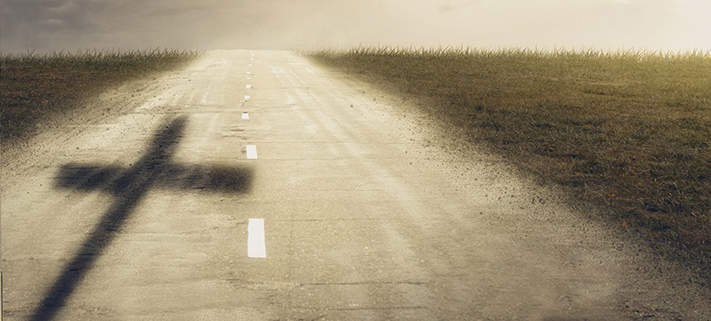Walk by the Spirit: Part 6
God warns us about being drunk and encourages us to practice self-control.
John A. Braun
Some say the Bible is ancient, out of touch, and old-fashioned, but they have not read Paul’s two lists in Galatians. Read the section again (Galatians 5:19-23), and you will see just how contemporary it is. Paul includes drunkenness as one of the acts of the flesh. Drunk drivers, shootings outside bars at 2:00 in the morning, or even loud arguments after a few beers testify that the Bible is not as old-fashioned as some want to believe.
At the same time Paul’s list of fruits of the Spirit are just as contemporary. The virtues listed are as important today as they were in Paul’s day: joy, peace, patience, kindness, goodness, faithfulness and gentleness. As a concluding fruit of the Spirit, Paul lists self-control. What could be more contemporary in a world given to excesses?
Acts of the flesh: Drunkenness and orgies
Scotch, bourbon, gin, wine, beer. Do you have a favorite? Almost a century ago it was all illegal. In 1920, the Eighteenth Amendment to the United States Constitution made it illegal to produce, import, transport, or sell alcoholic beverages. Prohibition attempted to eliminate the problems that comes in the wake of alcohol abuse. But instead bootleggers, organized crime, and speakeasies created more trouble for society and police. The amendment was repealed in 1933.
Perhaps the Christian temperance movement of the 1920s took Paul’s inclusion of drunkenness in his list of acts of the flesh as justification for its efforts to remove alcohol from our society. No one would disagree that drunkenness belongs on the list, at least no one who pays any attention to the news today. For example, drunk drivers are a plague on our roads. They cause almost half of the accidents. DUI (Driving Under the Influence) or OWI (Operating While Intoxicated) appear in many tragic stories of drivers killing children, mothers, friends, and police officers because they could not control themselves or their vehicles. Speeding, running red lights, failure to yield, and reckless and inattentive driving all mask the problem of drunk drivers.
And there’s more. College age students pass out from drinking too much. Some wander away from the bar and stumble into the cold to die of exposure or ramble off and drown in nearby rivers and lakes. Alcohol abuse defies age, race, and all social classifications. Persistent alcohol abuse traps many in an addiction that is difficult to escape and destroys lives, families, and futures.
Paul combines drunkenness with another companion act of the flesh: orgies or carousing, as some translate the Greek word. The two go together, and in our world today carousing might be called simply, “drunken parties.” Too much alcohol often leads to the loss of inhibitions. The contemporary version of this dangerous combination comes disguised as just having fun. All too often “having fun” gets out of control and leads to abuse, addiction, brutality, or sexual exploitation, and leaves behind black-eyes, bruised bodies, and arrests for disorderly conduct or worse.
Excess is the problem, not parties or responsible drinking. The sign at the edge of our Christian path beckons us to have fun and enjoy a few laughs. There is nothing wrong with that. But all too many follow the path; lose control; and bring trouble, pain, and disgrace to themselves and the Christian way. Sadly, some are also lost to those vices because they often breed other vices. That’s why Paul warned against these acts of the flesh.
Paul is not alone. Solomon also warned “Wine is a mocker and beer a brawler: whoever is lead astray by them is not wise” (Proverbs 20:1).
Fruit of the Spirit: Self-control
God’s Word suggests an alternative: self–control. Loss of control is the engine that pulls freight marked hatred, rage, jealousy, envy, and drunkenness. It sets aside the freight of the fruits of the Spirit: patience, kindness, goodness, faithfulness and gentleness. Self-control through the power of Christ pulls those virtues, and it seems like an easy prescription for our Christian path at every crossroad. It could be a billboard with the words of Solomon, “Like a city whose walls are broken through is a person who lacks self-control” (Proverbs 25:28).
Like others in this world, self-control eludes Christians at times. Satan prowls looking for opportunities to bring misery into our lives (1 Peter 5:8), and at times we are willing accomplices. The failure to control ourselves in various situations is listed on the resume of more Christians than we want to admit. Perhaps it’s even on the record of our own personal behavior.
What of those who see our lapses? At times our failure to live as disciples of Jesus may keep others away from our Savior. How often have we heard that we are hypocrites who carouse and drink to excess on Saturday night and then show up in church with a hangover on Sunday. Those who see such behavior wonder because we have polluted the Christian confession of our lips with the confession of our actions. We place a barrier for non-Christians to overcome before they are ready to listen to the gospel and our witness.
And there’s more. What we do affects those close to us: our families, our coworkers, and our fellow believers. And always, with every sin, we do not follow the will of our Savior. With each step we take along the path of sins of the flesh, we abandon the Christian way and chart a path away from Jesus. Yet as part of his family—his children by faith—we turn to him with shame and regret to beg for forgiveness: “Lord have mercy.”
The Christian way is a way of repentance. We are children of God through Jesus, and yet we still are troubled by our sinful nature along our journey to heaven. So we find it necessary to repent often. We turn away from our failures and beg for forgiveness. In his love for us, Jesus forgives. With that forgiveness he gives us the will and ability to do his good pleasure (cf. Philippians 2:13).
The Christian way is a way of repentance, but it is also a way of choices. Once we are free in Christ, we have a new spirit that wants to choose the fruits of the Spirit. Then three factors become important. First, we clarify what Jesus wants from us; his commands are always intended for our own good. Second, we think what our choices will mean for us personally, considering the consequences we may face because of our disobedience. Third, we think what our behavior also will mean to others—our spouses, our children, our fellow believers in Christ, and those who do not yet know Jesus. Then, by God’s gracious power, we choose the fruits of the Spirit and stay on the narrow way that leads us home.
We are different in this world. We walk in the Spirit and turn away from the vices of the sinful nature. Jesus himself encourages us, “Let your light shine before others, that they may see your good deeds and glorify your Father in heaven” (Matthew 5:16).
John Braun is executive editor of Forward in Christ magazine.
This is the final article in a six-part series on acts of the flesh and the fruit of the Spirit.
SUBMIT YOUR STORY
Do you have a manuscript, idea, or story from your own life you’d like to share for use in Forward in Christ or on wels.net? Use our online form to share it to our editorial office for consideration.
SUBSCRIBE TO FORWARD IN CHRIST
Get inspirational stories, spiritual help, and synod news from Forward in Christ every month. Print and digital subscriptions are available from Northwestern Publishing House.
Author: John A. Braun
Volume 106, Number 10
Issue: October 2019
Copyrighted by WELS Forward in Christ © 2021
Forward in Christ grants permission for any original article (not a reprint) to be printed for use in a WELS church, school, or organization, provided that it is distributed free and indicate Forward in Christ as the source. Images may not be reproduced except in the context of its article. Contact us



